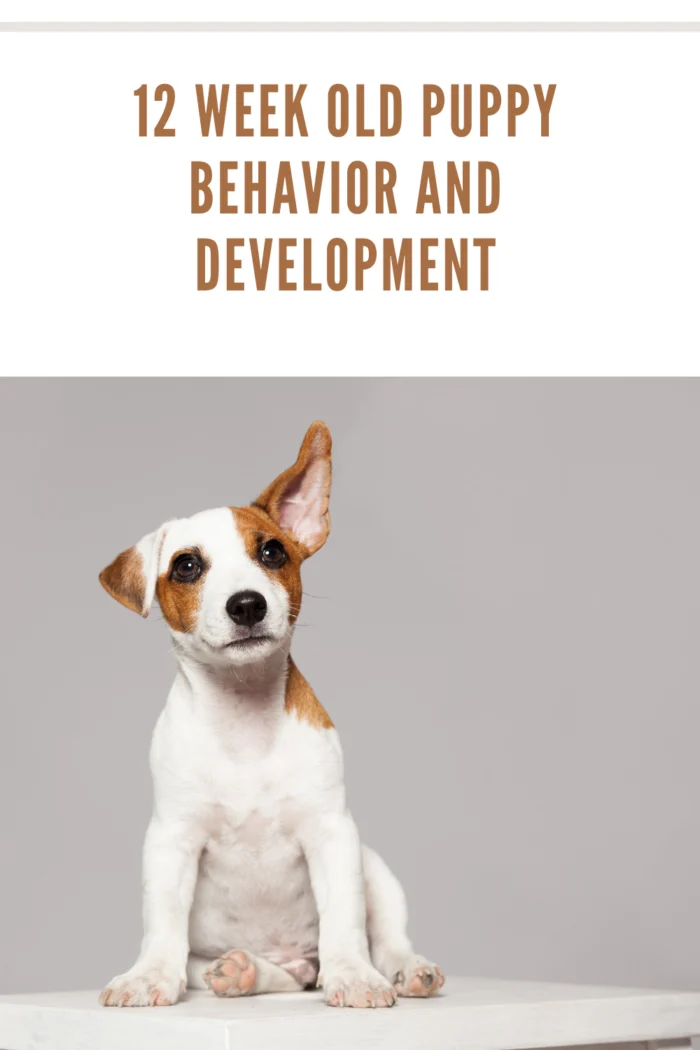You’re likely to be concerned about the behavior and development of your puppy, especially if you are considering getting a 12-week-old puppy or already have one.
Typically, dogs leave the breeder at about 12 weeks of age. Generally speaking, it applies to both large and smaller breeds. For instance, Maltese puppies are still immature at 12 weeks, both mentally and physically, and therefore do not leave their new homes until they are two months old.
The first eight weeks of a puppy’s life are critical regarding breeding. If you purchase from a breeder, the puppy could have been either a singleton (a pup that is the only one in the litter), or it could be from a litter that has already been sold. Some breeders have their puppies go back to the breeder if they are not suitable for the family.
This article will cover everything you need to know when dealing with a 12-week puppy. Typically, puppies are always a handful at this age, but fortunately, puppyhood tends to go fast. At some point, you might even find yourself missing some of your pet’s funny quirks.
12-Week Old Puppy Development
At this age, only a fraction of the puppies will be adults.
They tend to have attractive neotenic traits of smaller ones, but they are taller and longer.
Besides, their muzzles are starting to lengthen gradually.

Playfulness.
Having pleasure playing games with puppies is one of the finest things.
Forbes writes that playing with your dog is a great way to forge a bond and also a fantastic method for him to burn some energy while you are at home.
For something to do, here are some games you might like to play:
- Having games such as chasing after toys
- Hide and seek
- Bubble making
- Twist and untwist
- keeping track of games
- Massages and snuggles!
Habits such as exercise and relaxation are reinforced by playing an instrument.
To say that there are numerous games great for puppies is accurate.
Many of them are easy and don’t require unique supplies or toys.
When playing puppy games, you may also use them to improve their skills.
Looking at online puppy training courses recommends The HuffPost, so you can understand how this works.
Soft Hair
Unlike their adult counterparts, pups of this age have softer hair and lose very little of it.
Shampoos that are pH-balanced will be required.
As puppies are just learning how to clean themselves, it’s an excellent age to get used to the water.
Make the experience enjoyable and positive.
You can use hypoallergenic and alcohol-free dog wipes for cleaning when you bathe your dog.
Teething
Puppies should have 28 baby teeth when they are fully grown.
While their adult teeth haven’t arrived yet, they’re still at the stage where their baby teeth have worn out.
Their teeth start coming out between twelve weeks and seven months of age.
When they go through this three-step process, first, they will lose incisors, then premolars, and ultimately the canines.
Puppies have been known to drop their baby teeth into their water dish.
Have the vet check your pet’s mouth at three to four months of age to ensure there are no issues with your dog’s teeth and growth.
Puppy Training
Puppy training should start as soon as you bring your dog home.
Dogs get half of their daily ration during the day.
Give them a third of their daily rations as rewards and treats.
For the most part, your puppy’s kibble should be utilized for training and rewarding actions. For example, offer your pet some kibble when they lie down and have their paws on the floor rather than using the leap command. If you want to see more of that, reward it.
You can give the remaining portions at the end of the day!
Curious and Excited
Dogs at this age are learning everything they can about the environment around them.
This is quite similar to an open-air kindergarten in that mother wolves encourage their 10 to 12-week-old pups to utilize the den less and help them learn more about the great outdoors in designated rendezvous areas.
Puppies can be just as curious as human babies and frequently engage in exploration as a result. This is why you should take steps to keep your home safe for puppies.
Socialization
Your dog is at the final phase of puppy socialization at 12 weeks.
Classes are better when she’s between the ages of six and eight.
It is crucial to ensure that she comes into contact with people, pets, and children different from her.
Teach your puppy the joy of meeting various people by organizing puppy parties (learn more in Wikipedia).
When you’re looking for ways to socialize safely, be sure to check out the Operation Socialization website.
You can see how much growth and transformation puppies at this age go through!
In summary, enjoy this period of growth as your puppyhood is short.
